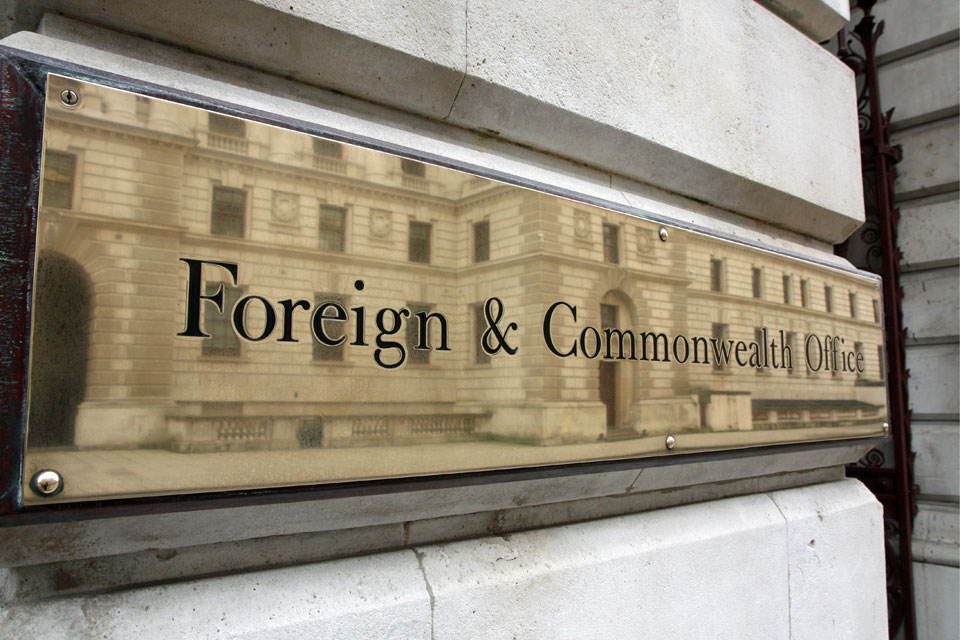3 million civilians at risk in Idlib
Statement by Ambassador Karen Pierce, UK Permanent Representative to the United Nations, at the Security Council briefing on Syria

Protocol requires me to thank the Russian representative for his statement. I will turn to some of his allegations in a moment. In my Presidential capacity, please may I remind Members of the Council and other speakers of Rule 507 to keep remarks to five minutes.
I will now speak in my national capacity and I will certainly do that.
I want to join the speakers in thanking John Ging, and I want to pay tribute to humanitarian workers as others have done. They work in extraordinarily difficult circumstances.
I also want to reject the allegations we’ve just heard against the Department for Political Affairs. To the best of my knowledge, everybody in the UN is trying to do their best for the people of Syria and they’re trying to do their best for the political process.
I think it’s clear from everything we’ve heard today that the situation especially in Idlib is dire. None of the list of achievements that the Russian representative read out, they are all a chimera, they will not help the people of Idlib. There are 3 million civilians at risk in Idlib, and the Syrian regime is yet escalating its military action against them. I would be grateful to know which forces have been relocated to Idlib and I would like to say that we will hold the commanders responsible for attacks on civilians.
I would also like to echo the words of the United States and France. The United Kingdom also will respond appropriately if the Asad regime repeats its illegal use of chemical weapons that has already had such devastating humanitarian consequences for the Syrian population.
I have three questions relating to the humanitarian situation. They centre around the fact that UN convoys have not had access to 6,000 internally displaced persons in Damascus and Eastern Ghouta for two months; that 1 million people remain in hard to reach areas where only 11% of interagency convoys are able to conduct needs assessment and deliver aid; and that the UN continues not to be given the necessary security assurances so that humanitarian convoys can come through the Ar Ramtha border crossing from Jordan. And that’s in violation as we’ve heard resolution 23 93. I hope the Syrian representative will be able to give us an explanation in his remarks.
The Russian representative referred to refugees going home. I think the ongoing military operations, the lack of humanitarian access, the bombing of schools, the arbitrary arrests, the bombing of hospitals show exactly why the situation is not right for refugees to go home en masse.
You said, Mr Ging, that Idlib represented a scale that we have not yet seen. We’re used to superlatives in Syria. We’re used to them being surpassed. You also mentioned Kofi Annan, and like others, I think the best tribute we can offer Mr Annan is to continue our efforts to accelerate the political process and bring peace to Syria.
I do want to make a point about reconstruction that our Syrian colleague set out and that has been echoed by every EU Member State and by the United States. There will be no reconstruction assistance until there is a credible and ongoing political process. There will not be a Marshall Plan for Syria. There will not be a Brussels Plan for Syria. If there is any plan, it will need to be a Moscow and a Putin plan.
I would now like to turn to some of the statements made by the Russian Ambassador.
The Russian Ministry of Defense today gave a briefing in which it said - and this has been echoed by members of his own Mission - that the United Kingdom and the White Helmets were involved in preparing chemical weapons attacks against the Syrian people. I did not use the word ‘comical’ in my press briefing. What I said was that even by the egregious standards of Russian propaganda, this is an extraordinary allegation. It is wholly untrue and it has been denied by the commander of the British forces in Kuwait who is supporting the coalition. I am happy to repeat that denial now and I am happy to rebut any allegation that the British government or British forces engages with terrorists on the ground in Syria. The only plausible explanation we have for why these stories are being floated at the time other than to increase the amount of fake news in the system is as a smokescreen for a possible impending attack by the Syrian regime once again against its own people in Idlib, and I repeat, the statement that I, the French, and the Americans made earlier about responding appropriately. We have no information about chlorine being delivered and therefore, if the Russian Ministry does have that, the most probable explanation is that it is a preemptive attempt to set the agenda and the narrative for an appalling attack to come. And I would appeal to Russia to use all its persuasive powers to convince the Syrian authorities not to attack their own population and never again to use prohibited chemical weapons.
I would draw the Council’s attention to the fact that we have had a letter from the Syrian authorities about warning of an impending attack, and I would recall for the Council that on 10th of March the Syrian authorities wrote to the Security Council to warn of a chemical attack in Eastern Ghouta, and one month later on the 10th of April this year, such an attack took place and is ascribed to the Syrian authorities. I repeat again our abhorrence of chemical weapons. And I repeat again that the British government will always uphold its commitment to prohibit the use of these weapons and will work with our international partners to ensure that that prohibition is upheld.